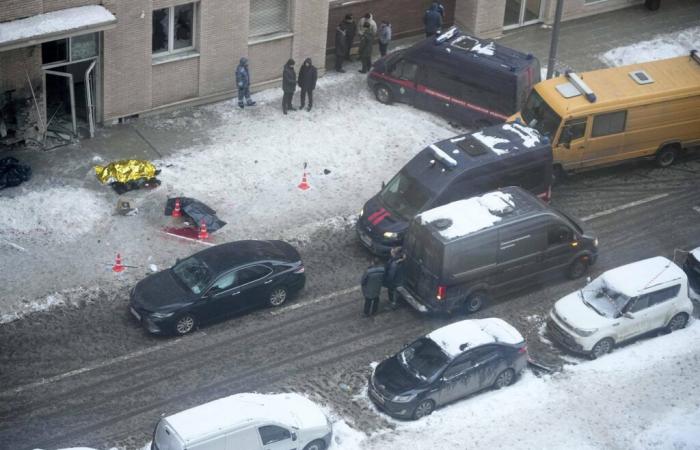General Igor Kirillov, Russian head of defense against chemical weapons, was killed by a booby-trapped scooter on Tuesday December 17, 2024 in Moscow. This elimination, claimed as a retaliatory action by the Ukrainian intelligence services, raises several ethical and strategic questions.
On an ethical leveleliminate a senior leader of an enemy army, a priori without collateral damage, even if it is not directly engaged in the theater of operations, seems to at first glance consistent with the law of armed conflict which is based in particular on the essential distinction between combatants and non-combatants and the principle of proportionality.
This mode of action has also been widely used by Western armies in their fight against jihadist groups whether in Afghanistan, in the Iraqi-Syrian zone or in the Sahel with very relative effectiveness, but it is another subject.
That being said, reprisals if they have no other goal than revenge and not the weakening of the enemy’s potential do not really make sense and only put the belligerents into the cycle of escalation to extremes. From an ethical point of view, their value therefore remains doubtful.
An action for what purpose?
So the real question is: what is the purpose of this action? Is this elimination likely to degrade a highly sensitive Russian military capability? Should it be understood as part of a circumvention strategy? Or is it just a media stunt like the short-lived conquest of part of the Kursk oblast?
Let’s rule out the first hypothesis straight away. Indeed, a general, even a very competent one, replaces himself and it is unlikely that this elimination will have a significant impact on the implementation of NRBC capabilities.[1] Russians. For this to happen, it would have had to be accompanied by kinetic actions on part of the Russian chain of command in charge of NRBC weapons.
Second hypothesis: in difficulty on the operational front, Ukraine shows that it remains capable of carrying iron into the heart of the Russian capital and thus hopes to regain the advantage on the psychological register (restore confidence to its camp; demoralize the opposing party) . After all, it is the essence of hybrid warfare to play on all possible modes of action on the “keyboard of action” dear to General Beaufre. The intention may be there, but the reality of the desired effects is undoubtedly unlikely given the almost three years of war that have passed which have shown the Ukrainian government’s capacity to surprise, but also its relative inability to exploit its “coups”. that is to say, to develop a real strategy. The offensive on Kursk in the summer of 2024, cited suprais the illustration of this.
Indeed, this elimination in the heart of Moscow, which is also claimed, is certainly humiliating for the Russians and likely to create a certain psychosis within the Russian high command. But to cause an effect of astonishment or to change the apparent inevitability of the Russian advance in Ukraine, it is unlikely and it is to underestimate the resilience of a country which has been capable in other times certainly, to burn his capital rather than negotiate with Napoleon.
For comparison, Israel offers the example of what a true multi-field, multi-field strategy is, by combining the astonishing neutralization of several hundred Hezbollah cadres by trapping their means of communication and more traditional actions of air and ground strikes. to lead to an effect of psychological astonishment and the lasting and profound disorganization of the military capabilities of the proxy Iranian.
Third hypothesis and undoubtedly the most probable: this elimination is a media stunt intended to bring the issue of Western support for Ukraine back onto the agenda. It is undoubtedly not a question of stirring up Western opinions already won over to the cause, but nevertheless tired of the war, but of challenging the leaders and proving to them Ukraine’s capacity to continue the fight with their help. It’s fair game and has already proven its effectiveness in the past.
Nevertheless, a few weeks before the inauguration of Donald Trump at the White House and therefore possible negotiations, this action, part of a clear context of escalation[2]perhaps aims to provoke the anger of the master of the Kremlin and push him to commit the irreparable, thus justifying the widening of the conflict that some seem to have been calling for for almost three years.
[1] Nuclear, radiological, bacteriological, chemical
[2] And moreover strongly criticized by the future tenant of the White House, thus presented with a fait accompli.






